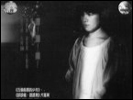Abnormal Family
- Year
- 1983
- Original title
- Hentai Kazoku Aniki no Yomesan
- Japanese title
- 変態家族 兄貴の嫁さん
- Director
- Cast
- Running time
- 62 minutes
- Published
- 20 March 2001



by Jasper Sharp
He's a funny one, that Masayuki Suo. With two highly successful crossover comedies under his belt (Sumo Do, Sumo Don't, 1992; Shall We Dance?,1996), who'd have thought a trawl through his filmography would have dredged up something like this? A pinku pastiche of Ozu!?
Yes, Suo, as with so many of his contemporaries cut his teeth on pinku eiga: the low-cost softcore end of the market that has always occupied a rather large proportion of Japan's cinematic output. Obviously the main real requirements of this type of fare has been to cram in the minimum skin quotient within a token plot whose purpose is to keep the viewer from dozing off in the interim scenes, and all within the confines of a cripplingly limited budget. Any more than this is really up to the inventiveness of the writer or director and Suo, acting in both capacities, has turned in a pretty admirable hand.
In this instance, the formula is derived from Yasujiro Ozu's Tokyo Story (Tokyo Monogatari, 1953), a low-key slice of family life film set in post-war Japan. The nuclear family of the original has mutated here to fulfill the basic requirements of the genre. Thus the 'abnormal' variant of Ozu's portrait of everyday folk now consists of a widowed alcoholic father, his two sons (the elder of whom spends much of the time appeasing a voracious sexual appetite with his buxom new bride; the younger spying on the two of them) and his daughter, who has secretly left her job as an office girl for a more lucrative role working in a sex sauna. This set-up is more than enough to fill up the narrative with steamy scenes of incest, a lengthy bondage session and liberal dollops of nudity throughout.
Suo has great fun playing with the various elements that typify Ozu's style, including the much posited predilection for carefully composed static shots from a low camera angle, framed as if the viewer were surveying the scene from the intimate viewpoint of the tatami mat, and affectionately poking fun at the restrained and easy-going "life goes on" philosophy of its model. It's a polished debut, and the bump and grind should easily succeed in fulfilling audience expectations, with the added bonus of an ironic counterpoint that will either amuse, annoy or pass over the heads of the individual viewer depending on their grounding within the world of Japanese cinema. One thing for sure is that at just over an hour long, there is little chance of anyone getting too bored.